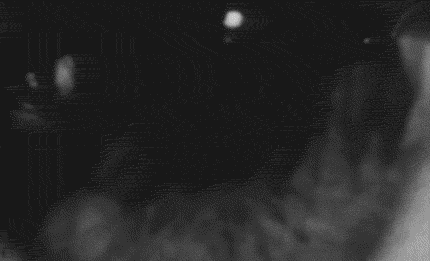"Our imagination knows its way around in it, and since the television series Holocaust and movies like Sophie's Choice and especially Schindler's List, actually moves in it, not just registering, but supplementing and embellishing it. Back then, the imagination was almost static: the shattering fact of the world of camps seem properly beyond its operations." (Page 148)
I found this passage to be one the most intriguing perspective on motion graphic media and how technology has changed the way we reenact memories. Many movies always contain some background historical context of the setting in the very beginning of the movie, or sometimes in the transition between two different scenes. Even if I hadn't lived during World War I or World War II, cinematography can to an extent make you relive history. In my history class last year, I did watch Schindler's List and I found it very chilling to observe the actors playing different roles of the World War II society. I could feel the suffering, the fear of the helpless prisoners, the heartless generals/officers who shot people for their own pleasure. Now that I reflect upon the movie, I could understand what Michael actually means when he talks about the numbness. Everyone in the movie was pretty much lost in their own world and their faces show a lack of emotion because they've reached to the point when they longer fear their situation and they're just waiting for everything to end. It's an endless routine of exhaustion and even those who were responsible for the genocide, didn't view the prisoners as human beings and I don't think they considered themselves human beings either. A piece of their humanity was lost and I could imagine how hard it was when World War II was over to actually look back and gain awareness of all the suffering.
If I hadn't watched the movie and was only limited to imagining the situation based on written records or maybe a few rare photographs of the events, I wonder if my imagination could capture the same intensity as watching the movie. No matter to what extent you try to imagine the events, I don't think it could give the same effect as watching it come to life.
A blog dedicated to the an all-inclusive analysis of a variety of novels.
Friday, January 24, 2014
Wednesday, January 22, 2014
Part II: Ch. 6 ~ Ch.10
"It does not invite one to identify with it and makes no one sympathetic....It never gives the barracks leaders, the female guards, or the uniformed security force clear enough faces to or shapes for the reader to be able to relate to them, to judge their acts for better or worse." (page 119)
When Micheal talks about the book published by the survivor of the tragedy that involved Hanna, it further reinforces the numbness that Michael felt and observed others experiencing. The book was written in a way that the author expressed and described the events exactly the way she perceived it. I think it's similar as to how Michael chooses to narrate "The Reader", He wants to preserve the emotions he felt at that exact moment and write as if he was experiencing it at that moment not really stepping outside of the moment and reflecting on it. The author of the book probably didn't want to reflect on the situation, just merely wanted to retell the events and what she saw and perhaps felt. I also had an idea of how powerful this numbness is, it's not just an absence of feeling, but something that you're unconsciously imposing on yourself and not something you can easily shield yourself from.
"...we learned that the girls read aloud to her, evening after evening after evening. That was better than if they....and better than working themselves to death on the building site. I must have thought it was better, or I couldn't have forgotten it. But was it better?" (page 116)
This passage explains why Hanna would always ask Michael to read out loud to her. I view it as almost a haunting experience because Hanna is probably reminded of the girls when Michael reads out loud to her. Hanna's treatment of the weak girls were also very similar as to how she treated Michael with such care and not wanting them to fall sick. Her motherly instinct is genuine, not exactly manipulative. Honestly, I sympathized with Hanna more than I expected to. I don't see her as a guilty, raging monster killing people, but more of a helpless victim of her own decisions, not knowing what to do with her mistakes. It's probably because of how Michael does write in an sympathetic tone, but not to the extent that he is empathizing with her. His emotions for her are detached and no longer there, he is aware of her appearance and her movement, but it no longer affects him as it had before.
When Micheal talks about the book published by the survivor of the tragedy that involved Hanna, it further reinforces the numbness that Michael felt and observed others experiencing. The book was written in a way that the author expressed and described the events exactly the way she perceived it. I think it's similar as to how Michael chooses to narrate "The Reader", He wants to preserve the emotions he felt at that exact moment and write as if he was experiencing it at that moment not really stepping outside of the moment and reflecting on it. The author of the book probably didn't want to reflect on the situation, just merely wanted to retell the events and what she saw and perhaps felt. I also had an idea of how powerful this numbness is, it's not just an absence of feeling, but something that you're unconsciously imposing on yourself and not something you can easily shield yourself from.
"...we learned that the girls read aloud to her, evening after evening after evening. That was better than if they....and better than working themselves to death on the building site. I must have thought it was better, or I couldn't have forgotten it. But was it better?" (page 116)
This passage explains why Hanna would always ask Michael to read out loud to her. I view it as almost a haunting experience because Hanna is probably reminded of the girls when Michael reads out loud to her. Hanna's treatment of the weak girls were also very similar as to how she treated Michael with such care and not wanting them to fall sick. Her motherly instinct is genuine, not exactly manipulative. Honestly, I sympathized with Hanna more than I expected to. I don't see her as a guilty, raging monster killing people, but more of a helpless victim of her own decisions, not knowing what to do with her mistakes. It's probably because of how Michael does write in an sympathetic tone, but not to the extent that he is empathizing with her. His emotions for her are detached and no longer there, he is aware of her appearance and her movement, but it no longer affects him as it had before.
Part II: "What would you have done?"
When Hanna asked the judge directly, "What would you have done", regarding her decision to sending old prisoners away to make room for new prisoners, it was a serious question that Hanna genuinely wanted an answer. Of course, logically, Hanna should have tried her best to save lives of the prisoners because that's the morally right thing to do. The witnesses at the trial may have been appalled at her for asking such a question, but we need to consider the circumstances that she was put in. I'm pretty sure she didn't voluntarily join the Red Guards to with the intent of watching people suffer and basically digging their graves in these concentration camps. At time we make decisions in which we weren't aware of the consequences in the first place. Therefore when the judge replied, "there are matters one simply cannot get drawn into, that one must distance oneself from", his words meant nothing. Hanna had already made the decision of putting herself into such a position, and she couldn't simply walk out of it or act against what she's been ordered to do. This contradiction of what you've been ordered to do versus what you're supposed to do (or a moral obligation) makes her situation something that cannot be rationalized. It isn't fair to place the whole guilt on her because she did not willingly accept such a responsibility, and her own life was at stake too. The numbness that is accompanied to those that are desensitized to the horrific WWII circumstance, also factors into the challenge on figuring what action should be done in that moment.
Her actions in the past shapes who she is right now. When we're dealing with the past, there is no right or wrong answer because what has been done has already been done. There is no need for "what if...." or "maybe..." because the reality is it did not happen and we should all accept the past and move on. That also means that there is no use in asking the purpose of actions done in the past, because sometimes there was no reason, it was just something that had to be done and ultimately the decision that was chosen.
Monday, January 20, 2014
Part II: Ch. 1 ~ Ch. 4
As The Reader progresses into Part II, we see a different side of Michael. His disavowal of Hanna led to betrayal and left him carrying the burden of guilt. The guilt he describes is not the type of guilt that children experience when they know they've done something wrong and they're afraid to admit it to their parents because for the fear of scolding, but a guilt that leads to numbness in the mind and a mental paralysis. To Michael, it wasn't just the feeling of guilt, but it was also something that he couldn't overcome and something that will always be a part of him. Michael expresses ".....and I know that even if I had said goodbye to my memory of Hanna, I had not overcome it.....never to take guilt upon myself or feel guilty, never again to love anyone whom it would hurt to lose--I didn't formulate any of this as I thought back then, but I know that's how I felt." (Page 88) This demonstrates that Michael did not only possess guilt, but the guilt controlled him to the extent in which he fears to love again. As I had predicted in my previous posts, the instability of their relationship and their difference would leave him vulnerable. Personally, I don't think it's fair that he had to suffer through all of these feelings at such a young age, but at the same time because of this relationship, he gained maturity and experience and he has the choice to grow stronger and keep his head held high, or let it destroy him (the latter is the route that he chose). In Part II, he meets Hanna as he watches the trials for convicted prosecutors who worked for the Nazi and the Auschwitz camp. Guilt was not only felt by Hanna for her wrongdoings, but felt by everyone that witnessed and were involved in the trials. Their as an over-encompassing guilt felt by everyone, all to their own degree of guilt, depending on how they handled guilt of the Nazi horrors. There's this numbness in which Michael felt and observed the same numbness felt by others, "All survivor literature talks about this numbness, in which life's functions are reduced to a minimum, behavior becomes completely selfish and indifferent to others, and gassing and burning are everyday occurrences.....the gas chambers and ovens became ordinary scenery...exhibiting a mental paralysis and indifference, a dullness that makes them seem drugged or drunk. The defendants seemed to me to be trapped still, and forever, in this drugged state, in sense petrified in it." (Page 103) It's a depressing state involving all of the German population, no matter what their role was in WWII or just being the post-world war II generation having to accept their past with shame and repulsion.
The repulsion, shame, guilt felt by the witnesses of the trials. (Also applicable to the numbness Michael felt towards love or any feeling of compassion)
I feel like his portrays how I would imagine Michael and his numbness.
Sources:
http://24.media.tumblr.com/tumblr_l11jc6UKmn1qai1u6o1_500.gif
http://31.media.tumblr.com/5cbd87971c86717c35a018f79aa3bbf1/tumblr_mvwv3vhMeO1sf7mc7o1_500.png
Wednesday, January 15, 2014
Part I (Ch. 1 - Ch. 17); Memory
In Part I, memory is an essential element of "The Reader." From the very beginning of the novel, Michael is using his memory to retell his past, everything we're being told is as accurate as his memory can recall. He's always listing everything he observes in his surroundings and going into detail on how he felt in every memory. As the novel progresses in Part I, he also delves into abstract and highly analytic psychology ideas. Despite how naive and oblivious Michael seems, he's actually alert to his experiences and manages to formulate very intriguing opinions on memory and his behavior.
"Why does what was beautiful suddenly shatter in hindsight because it concealed dark truths? Why does the memory of years of happy marriage turn to gall when our partner is revealed to have had a lover all those years?.....Sometimes the memory of happiness cannot stay true because it ended unhappily." (page 37)
"I have stored them away, I can project them on a mental screen and watch them, unchanged, unconsumed. There are long periods when I don't think about them at all. But they always come back into my head, and then I sometimes have to run them repeatedly through my mental projector and watch them."
Five different memories of Hanna that he claims he will remember forever:
"Why does what was beautiful suddenly shatter in hindsight because it concealed dark truths? Why does the memory of years of happy marriage turn to gall when our partner is revealed to have had a lover all those years?.....Sometimes the memory of happiness cannot stay true because it ended unhappily." (page 37)
When I read this passage, it definitely told me in hindsight that something terrible will come afterwards and it's like he's warning us beforehand that this happiness that he describes in the beginning of the relationship will not last. However, he's trying to preserve these happy memories and remember them as how he actually experienced rather than have the future "shattering" memories impact the happy memories....but that's really hard to do because our memories are also influenced by what we have experienced AFTER that particular memory occurred.
"I have stored them away, I can project them on a mental screen and watch them, unchanged, unconsumed. There are long periods when I don't think about them at all. But they always come back into my head, and then I sometimes have to run them repeatedly through my mental projector and watch them."
Five different memories of Hanna that he claims he will remember forever:
- Hanna putting on her stockings in the kitchen
- Hanna standing in front of the tub holding the towel in her outstretched arms
- Hanna riding her bike with her skirt blowing
- Hanna in Michael's father's study
- Hanna receiving the silk nightgown and admiring it
"To solve the riddle, I made myself remember the whole encounter, and then the distance I had created by turning it into a riddle dissolved, and I saw it all again, and again I couldn't take my eyes off her." (page 16)
"I have no memory of the lies I told my parents about the trip with Hanna......I can't recall where my parents and my older brother and sister were going." (page 59)
"I no longer remembered when I first denied Hanna." (page 74)
I've also noticed that in Part I, he also mentions frequently that he doesn't remember the lies he told his parents or the his "betrayal" of Hanna. It would obviously makes sense because you generally want to remember things that make you feel happy, special, complete, and whatnot but you'd want to forget or repress all the memories that made you feel guilty or things you've regret. Memory plays a very interesting role in "The Reader" and it acts as like the pillar of the narrative of the novel.
Sources:
http://elaboyd.com/wp-content/uploads/2011/06/ela_boyd_perception_projection.jpg
http://bearglassblog.com/wp-content/uploads/2011/03/broken_glass.jpg
http://31.media.tumblr.com/tumblr_ma84gkxD8J1qlq9poo1_400.jpg
http://31.media.tumblr.com/444ea024d2584ceafd236d25a7fb09ca/tumblr_mfr3muWfGs1qfrrv2o1_400.png
The previous passage also reminded me of a passage that is found in the first several chapters of the book. He regarded his early memories of Hanna as a riddle and he "projects" the memories in order to relive the moments and then he remembers the reason for his attraction for Hanna. Therefore without his sharp sense of memory, his relationship and his attraction to Hanna wouldn't be the same.
"I have no memory of the lies I told my parents about the trip with Hanna......I can't recall where my parents and my older brother and sister were going." (page 59)
"I no longer remembered when I first denied Hanna." (page 74)
I've also noticed that in Part I, he also mentions frequently that he doesn't remember the lies he told his parents or the his "betrayal" of Hanna. It would obviously makes sense because you generally want to remember things that make you feel happy, special, complete, and whatnot but you'd want to forget or repress all the memories that made you feel guilty or things you've regret. Memory plays a very interesting role in "The Reader" and it acts as like the pillar of the narrative of the novel.
Sources:
http://elaboyd.com/wp-content/uploads/2011/06/ela_boyd_perception_projection.jpg
http://bearglassblog.com/wp-content/uploads/2011/03/broken_glass.jpg
http://31.media.tumblr.com/tumblr_ma84gkxD8J1qlq9poo1_400.jpg
http://31.media.tumblr.com/444ea024d2584ceafd236d25a7fb09ca/tumblr_mfr3muWfGs1qfrrv2o1_400.png
Monday, January 13, 2014
Chapter 10 ~ Chapter 11 ; Fights lead to greater intimacy in relationships?
As the novel progressed in chapters ten and eleven, I feel like more of Hanna's personality is revealed and many of my questions have been answered. It turns out that Hanna wasn't as strong of a character as she had tried to be in the beginning, as Meghan wrote in her response, she's very insecure. While I was browsing through other people's posts on their responses to these chapters, Bernie made a really good point on how Hanna might be illiterate and that may be what's causing most of their fights/misunderstandings.
In chapter 10, during the first day of his Easter vacation, Michael wanted to surprise Hanna by meeting her in the streetcar. However, he experienced conflict with Hanna when he decided to sit in the second car rather than the car Hanna was in because he wanted more privacy and expected Hanna to come and greet him. Hanna interpreted his actions as trying to ignore her and not wanting to be seen with her in public. Although the causes of this fight may have just been a misunderstanding, its outcome spoke volumes because it triggered a Hanna who he hadn't seen before.
In chapter eleven, Michael and Hanna experience an even more abusive conflict to the point that Hanna hits Michael with a belt. The causes are similar to the first sight; lack of communication leading to misunderstanding. Seeing Hanna cry and yearn for his comfort allowed Michael to feel closer to Hanna. I think it's true in most circumstances that the more you "fight" with someone, the more closer you are to them because you see a different side of them or just in general getting to know them better and settling differences between each other. However, there should also be a distinct line between "healthy fights" and fights categorized more as violent and abusive.
At this point of the novel, their relationship can steer both ways, and it will be largely determined as to how Michael deals with incoming conflicts and differences with Hanna.
Source: https://blogger.googleusercontent.com/img/b/R29vZ2xl/AVvXsEjeaH2ULoImEn2Ta1L12OClYPbkI1kVJciItquEuuuuaAztEPO58Mc3qok_9ZLoPtV5rh4N_cMT41PiXQqi8vksp7vfK4_0OcK_4BMCl7kex9Ov5FX0vLj9ODEcOR707XU4aP2vCqHfvNWu/s1600/couple-arguing1.jpg
In chapter 10, during the first day of his Easter vacation, Michael wanted to surprise Hanna by meeting her in the streetcar. However, he experienced conflict with Hanna when he decided to sit in the second car rather than the car Hanna was in because he wanted more privacy and expected Hanna to come and greet him. Hanna interpreted his actions as trying to ignore her and not wanting to be seen with her in public. Although the causes of this fight may have just been a misunderstanding, its outcome spoke volumes because it triggered a Hanna who he hadn't seen before.
"And I became uncertain. Could she be right, not objectively, but subjectively ? Could she have, must she have misunderstood me? Had I hurt her, unintentionally, against my will, but hurt her anyway?" (page 48)This quote resonated with me because it emphasizes this pattern in Michael's behavior in which he constantly doubts himself and has the tendency to change his initial thoughts. Although it was clear he was hurt and emotionally destroyed to Hanna's dismissive behavior on the streetcar, he gives it a second thought and thinks to himself, "Oh, well maybe it WAS my fault EVEN THOUGH she hurt my feelings, maybe she's ALWAYS right."
"If she had just wanted to win a power game....It was if the actual cause of our fight had been meaningless. But its results had meaning. I had not only lost this fight. I had caved in after a short struggle.....I didn't fight at all.....I took all the blame. I admitted mistakes I hadn't made, intentions I'd never had." (page 49)I was intrigued by how Michael does happen to be aware of the "power game" in his relationship with Hanna because his actions make it seem as if he's completely oblivious to it. I think despite how naive we may think Michael is for giving into Hanna's possessive and manipulative nature, he pretty much has it all figured out in how he's always the loser and Hanna is the clear winner. This is interesting especially because in my very first analysis of chapter 1 ~ chapter 5, Michael explained how his behavior did not necessarily reflect his thought-process or reasoning in his decision making.
"The fight made our relationship more intimate. I had seen her crying. The Hanna who could cry was closer to me than the Hanna who was only strong. She began to show a soft side that I had never seen before.......we no longer merely took possession of each other." (page 57)
In chapter eleven, Michael and Hanna experience an even more abusive conflict to the point that Hanna hits Michael with a belt. The causes are similar to the first sight; lack of communication leading to misunderstanding. Seeing Hanna cry and yearn for his comfort allowed Michael to feel closer to Hanna. I think it's true in most circumstances that the more you "fight" with someone, the more closer you are to them because you see a different side of them or just in general getting to know them better and settling differences between each other. However, there should also be a distinct line between "healthy fights" and fights categorized more as violent and abusive.
At this point of the novel, their relationship can steer both ways, and it will be largely determined as to how Michael deals with incoming conflicts and differences with Hanna.
Source: https://blogger.googleusercontent.com/img/b/R29vZ2xl/AVvXsEjeaH2ULoImEn2Ta1L12OClYPbkI1kVJciItquEuuuuaAztEPO58Mc3qok_9ZLoPtV5rh4N_cMT41PiXQqi8vksp7vfK4_0OcK_4BMCl7kex9Ov5FX0vLj9ODEcOR707XU4aP2vCqHfvNWu/s1600/couple-arguing1.jpg
Friday, January 10, 2014
Chapter 6 ~ Chapter 9: My Impression of Hanna
Before
My first impression of Hanna was very limited, considering that I can only view her from Michael's perspective. Micheal's attraction to her was mostly her seductiveness through her movements, but he describes how her motherly actions especially soothed him. Not only was she a motherly character, but she gave me an impression of the typical "strong independent woman" stereotype. It's almost like she possesses this balance of gentle, motherly instincts and an inner strength and bold charisma.Motherly
 |
| http://cutelypoisoned.files.wordpress.com/2011/09/ist2_3873679-mother-and-child-logo.jpg |
"You can't go home like that. I'll run you a bath and beat the dust out of your clothes......Take the shampoo and wash you hair. I'll bring a towel in a minute." (pg. 24)From the very beginning of the book, Hanna had a conspicuous motherly instinct by the way she took care of Michael when she found him vomiting and helpless. She bathes him and emulates tenderness, very similar as to how a mother would comfort and care for her child. I feel that Michael is so attracted to her tenderness because it somehow reminds him of the comfort his mother gave him when he was a child. He feels appreciated, loved, and the feeling of loneliness and abandonment disappears when he's around Hanna. On page 28 Michael even recalls a vivid memory of how his mother would wash and dress him, which is eerily similar to Hanna's treatment towards him.
"My mother had pushed a chair up close to the stove for me to stand on while she washed and dressed me. I remember the whole wonderful feeling of warmth, and how good it felt to be washed and dressed in this warmth." (pg. 28)
The "strong independent woman"
 |
| http://www.edencovenant.com/wp-content/uploads/2013/08/independent-woman-copy1.jpg |
"She had grown up in a German community in Rumania, then come to Berlin at the age of sixteen, taken a job at the Siemen's factory, and ended up in the army at twenty-one. Since the end of the war, she had done all manner of jobs to get by." (pg. 39)Another main impression that I received in the beginning is that Hanna, a thirty-six year old woman, examplifies the "strong, independent woman". She's not married, she has no children, and she apparently has no family, She's a street conductor and to my knowledge, she doesn't seem to be dependent on anyone else besides herself. She's her own pioneer, she makes her own decisions, and Michael frequently comments on her strong physical features rather than daintly or feminine. However, considering that she came to Berlin at the age of sixteen and taken a job at a factory, she must have faced hardships and tough cirmustances that have made her the woman she is as Michael describes her.
After
My first impressions of her were mainly positive and typical womanly characteristics. As the novel progresses, Michael's relationship with Hanna becomes more intimate and more of her personality is unveiled. My impression of their relationship is that Michael is so overly-allured by her presence and by her touch that it seems that his happiness depends on Hanna. Hanna controls the strings in their relationship and it seems rightly so because Hanna is more mature and experienced and Michael's sole purpose is to offer equal or not more pleasure to her.
Manipulative
 |
| http://www.calldrmatt.com/manipulative_woman.jpg |
"I didn't understand what was going on. Was she thinking of me? Or of herself?....But was I her lover? What was I to her?.......and as I kissed her goodbye, she didn't respond." (pg. 36)
After having completed chapter nine, I have an impression that Hanna is manipulative as she controls the strings in their relationship. Michael is almost like her puppet, and she can order him to do whatever she wishes because Michael would hate to disappoint her in any way. There doesn't seem to be a mutual understanding of their relationship as lovers and there's still ambiguity as to how Hanna really feels about him. If only the novel offered some narration through Hanna's perspective, I'd be able to judge for myself whether Hanna is intentionally manipulating his feelings or their relationship, or maybe it's just Michael that has it all misconstrued in some way or another?
Possessive
 |
| https://encrypted-tbn2.gstatic.com/images?q=tbn:ANd9GcTNicVSR9o5CyLVZDnGMDP6KLh6K0d8vmwEW8GYid31RBxZdK0BPVnBwMIX |
"When we made love, too, she took possession of me.........I liked to have her take possession." (pg. 33)Furthermore than just being manipulative, Hanna takes possession of Michael, and he enjoys her possession of him. In this context, he is talking about them making love together, but I think it also applies metaphorically in the dynamic of their relationship. I sense that her possession of him could even reach to the point of abuse because in the end, there is a possibility of him being imprisoned in her possession of him and he doesn't have any choice but to let her possess him. The fact that he enjoys such possession, portrays an imbalance in their relationship and could lead to future conflicts between each other.
Wednesday, January 8, 2014
Post WWII: Vergangenheitsbewältigung & German 1960's Student Movement
Vergangenheitsbewältigung
Vergangenheitsbewältigung, meaning coming to terms with the past, became popular in Germany after WWII (the 1950s). The atrocities committed by the Nazis (National Socialist Party) during WWII such as the holocaust were tragedies that Germany as a whole struggled to accept.
During the first years of the Federal Republic, the majority of the German population did not want to remember what had happened because most were supporters of Nazism in one way or another or at least gave acquiescence to the actions of the Nazi party. There was a share of guilt and shame in each individual at the moral and political widespread failure, therefore coming to terms with past events was not immediately set in motion. Germans did not confront individual and collective guilt but rather repressed it in ways such as believing “We knew nothing!”. However, the population publicly condemned National Socialism and the majority of West Germans were prepared to accept responsibility for the crimes of the “Third Reich”.
This term, although popular, was regarded by some as offensive. Some Germans believed that the past is impossible to “come to terms with” because what had already happened cannot be reverted. More radical thinkers believed nothing wrong had been done, thus there was no need for Vergangenheitsbewaltigung. Others thought steps had to be made in order to make up for Germany’s past crimes, and people should not simply forget what had happened. Vergangenheitsbewältigung could also be regarded as a means of appropriation for events that occurred during World War II. Germans in post-World War II were not merely accepting past events and moving on from the tragedy, but also drawing consequences from their past actions to prevent such cruelty from happening again. The goal of Vergangenheitsbewältigung is to gain awareness of the past horrors and for Germany to hold in remembrance a collective consciousness of their history.
The German Student Movement in Germany in the late 1960s were a series of student revolts that centered around dissatisfaction at the German government as well as the US government. The revolts were sparked by a multitude of things: government hypocrisy, US involvement in the Vietnam War, and unfair treatment for students.
After World War II, the German government claimed to have developed an anti-fascist government, however many Nazis were still left with powerful government positions. In addition, students across the country were angered by US involvement in The Vietnam War and at the German government for backing the US (Germany backed up the US because they were still under surveillance).The German government was trying to change universities across Germany, producing more graduates faster in order to improve the economy as well.
The students were mainly fueled by these factors to protest for a more democratic government. The movement eventually began to fall apart near the end of 1968 when students started turning against each other because of their different beliefs. Although the results of the student movement were not immediate nor were they exactly what the students had fought for, it still had a large impact on the making of present-day Germany. One of the largest changes to the German government, caused by these student revolts, was the emancipation of women and the passing of the radical degree which allowed the government to prevent citizens who did not believe in a Democratic government from employment. Overall, the Student Movement in Germany was extremely important to the making of Germany after WWII. In a way, the German Student Movement is an example of Vergangenheitsbewältigung. Students saw traces of fascism in their government and instead of merely accepting their situation, they fought for a new future and that was how they came to terms with the crimes Germany committed in the past.
After World War II, the German government claimed to have developed an anti-fascist government, however many Nazis were still left with powerful government positions. In addition, students across the country were angered by US involvement in The Vietnam War and at the German government for backing the US (Germany backed up the US because they were still under surveillance).The German government was trying to change universities across Germany, producing more graduates faster in order to improve the economy as well.
The students were mainly fueled by these factors to protest for a more democratic government. The movement eventually began to fall apart near the end of 1968 when students started turning against each other because of their different beliefs. Although the results of the student movement were not immediate nor were they exactly what the students had fought for, it still had a large impact on the making of present-day Germany. One of the largest changes to the German government, caused by these student revolts, was the emancipation of women and the passing of the radical degree which allowed the government to prevent citizens who did not believe in a Democratic government from employment. Overall, the Student Movement in Germany was extremely important to the making of Germany after WWII. In a way, the German Student Movement is an example of Vergangenheitsbewältigung. Students saw traces of fascism in their government and instead of merely accepting their situation, they fought for a new future and that was how they came to terms with the crimes Germany committed in the past.
- http://geo-000.blogspot.tw/2011/05/biggest-college-protests.html
-https://blogger.googleusercontent.com/img/b/R29vZ2xl/AVvXsEjsZPO_y1zQWmCgMO2WV1phITFn-NYlbgu4UYstEc4uAiLVIZH_hFAbgl5C_GkNq6xBDa-1ZszfJELXVRTGSr-QtyBNJOUdzmFPMCoXUI_ax26UiOeCzUlZqvv_IRdiIfV0flwOdosTWtU/s1600/pastpresentfuture_525.jpg
-https://blogger.googleusercontent.com/img/b/R29vZ2xl/AVvXsEjsZPO_y1zQWmCgMO2WV1phITFn-NYlbgu4UYstEc4uAiLVIZH_hFAbgl5C_GkNq6xBDa-1ZszfJELXVRTGSr-QtyBNJOUdzmFPMCoXUI_ax26UiOeCzUlZqvv_IRdiIfV0flwOdosTWtU/s1600/pastpresentfuture_525.jpg
Tuesday, January 7, 2014
Chapter 1 ~ Chapter 5
"Her face as it was then has been overlaid in my memory by the faces she had later. If I see her in my mind's eye as she was then. she doesn't have a face at all, and I have to reconstruct it. High forehead, high cheekbones, pale blue eyes. full lips that formed a perfect curve without any indentation, square chin. A broad-planed, strongly, womanly face. I know that I found it beautiful. But I cannot recapture its beauty." (pg. 12)
This passage relates to how the main character, a fifteen year old sickly boy, perceives the woman whom he is strongly attracted to. He describes the detail of her face as she is conducting different chores and it shows how observant he is to specifically her face. Interestingly enough, he doesn't focus on the other parts of her body, her voice, or what she says to him. His memory of the woman's face is constantly changing as he observes her different facial expressions and different movements. It seems like he doesn't have a fixed image of her, but rather reconstructs the image every time he observes her face. He perceives the woman's face as so beautiful that his mind can't capture her beauty in a single image, he only knows for sure that her face is beautiful. Even though he is attracted her strong, womanly face, he's not really in love with the picture of her face, but more of the present moment when he is actually observing her face. It's not like falling in love with a pretty girl in a picture, but falling in love with who she is when he observes her in the moment.
"I don't mean to say that thinking and reaching decisions have no influence on behavior. But behavior does not merely enact whatever has been thought through and decided. It has its own sources, and is my behavior, quite independently, just as my thoughts are my thoughts, and my decisions my decisions." (pg. 20)Source: http://www.self-esteem-experts.com/images/thoughtsfeelingsbehavior.jpg
What I find most interesting about this passage is how his thought-process and decision making contradict his behavior and what he ends up choosing to do. Generally, our decision making process determines what we decide to do and our behavior, but rarely do we turn away from what we have planned to do. His thought process reflects his rationalization of his behavior and his thoughts. I think his unique cognitive process is what characterizes his relationship with the woman. They don't seem to be bonding in a friendship by getting to know each other with conversations, but just by meeting each other and by observing each other. When he is away from the woman, he is vividly fantasizing about her through guilty pleasures but in reality he doesn't have the courage to truly express himself with her. I'm really interested as to how their relationship will progress because it seems like they're not really communicating with each other when there is a clearly an attraction between them.
Subscribe to:
Posts (Atom)













